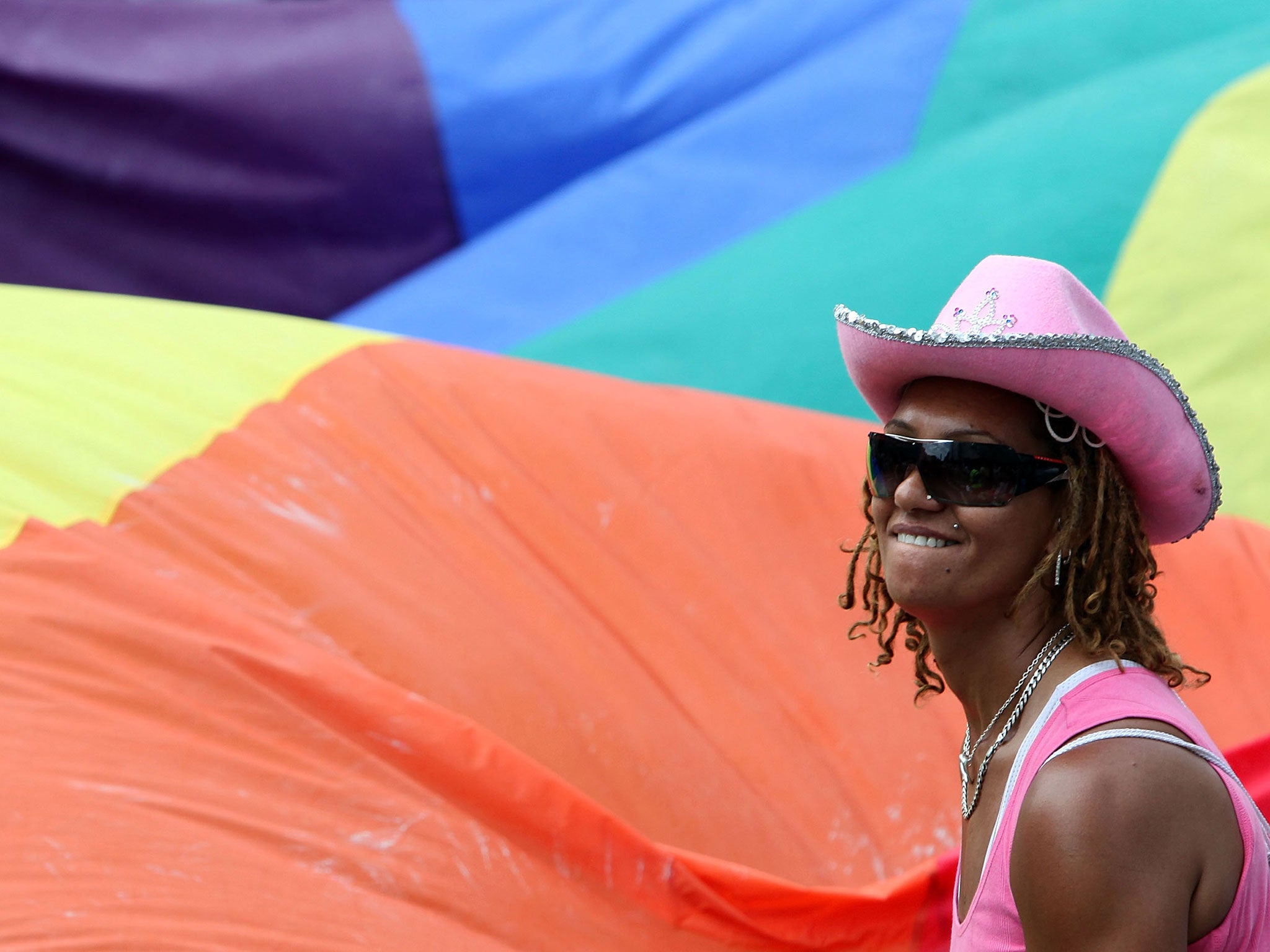If half of young people are 'a little bit gay', why are bisexuals still invisible in our society?
People are increasingly likely to see sexuality as a scale, rather than a hard and fast dichotomy. Good news for those fighting bi-erasure


Your support helps us to tell the story
From reproductive rights to climate change to Big Tech, The Independent is on the ground when the story is developing. Whether it's investigating the financials of Elon Musk's pro-Trump PAC or producing our latest documentary, 'The A Word', which shines a light on the American women fighting for reproductive rights, we know how important it is to parse out the facts from the messaging.
At such a critical moment in US history, we need reporters on the ground. Your donation allows us to keep sending journalists to speak to both sides of the story.
The Independent is trusted by Americans across the entire political spectrum. And unlike many other quality news outlets, we choose not to lock Americans out of our reporting and analysis with paywalls. We believe quality journalism should be available to everyone, paid for by those who can afford it.
Your support makes all the difference.Ukippers, hard-line Christians, and other such persons were right to be worried. The insidious Gay Agenda is slowly creeping over the UK, and soon Britain will overrun by bare torsos in rainbow bodypaint, Rocky Horror Picture Show screenings, and – worst of all - the increased acceptance of those who don’t identify as straight.
According to a recent YouGov survey, around half of young people are at least a little bit gay. Of those surveyed, 72% of adults and 49% of people aged 18 to 24 chose a position other than exclusively heterosexual. These results are nothing less that sweet music to my bisexual ears.
YouGov, perhaps scrambling to regain credibility after their disastrous predictions regarding the 2015 general election, were quick to clarify that the results don’t necessarily refer to active bisexuality. But the most interesting thing about the new findings is that people are increasingly likely to see sexuality as a scale, rather than a hard and fast dichotomy.
The idea that sexuality is more than either ‘gay’ or ‘straight’ is very important in terms of the acceptance of all LGBT folk. Presenting sexuality as a ‘one or the other’ choice acts as an unhelpful straightjacket (sorry) and can prevent people from feeling comfortable enough to truly understand and explore their sexual desires. It also contributes to the very real issue of bi-erasure, where those who identify as bi are rendered invisible in the LGBT community and saddled with negative stereotypes in wider society.
Bi-erasure really sucks because it can stop or delay those who identify as bisexual from coming out due to the internalisation of harmful myths around bisexuality. How many people who identify as bi have been told they’re ‘greedy’ or ‘attention-seeking’ or ‘going through a phase’ or that they should just ‘make up their mind’? The recent hashtag #GrowingUpBi indicates that these negative and uneducated responses are commonplace. As a bisexual teenager, I experienced serious homophobic bullying at school that lasted for several years, but when I got to university I didn’t join an LGBT society because I didn’t think I was ‘gay enough’ to be accepted.
The results of the YouGov survey are encouraging in that they indicate a greater openness to accepting fluid and non-binary sexual identities. If young people are increasingly willing to place themselves on a scale of sexuality rather than either entirely gay or entirely straight, this could help to eradicate bi-erasure, and will certainly facilitate greater acceptance of non-hetero identities.
As a nation, we’ve made huge gains in the struggle for LGBT rights over the last ten years. The fight isn’t won, of course, and there are still homophobic attacks carried out, homophobic slurs included in everyday conversation (“that’s so gay”), and offensive stereotypes attached to people who don’t identify as straight. In popular culture, gay characters are still tokenised or characterised solely by their sexuality. Trans men and woman are still subjected to harassment and violence on a mass scale, particularly if they are people of colour. Femme-presenting lesbians are still fetishized as sex objects for straight men. Bi and pansexual individuals are still dismissed as hypersexual or merely ‘trying on’ a different sexuality, Katy Perry-style.
Meanwhile, the idea that if you’re not gay or lesbian, you’re not really part of the LGBT community, is incredibly damaging and can leave bisexual and pansexual individuals feeling lonely and isolated, like they don’t fit in anywhere and their sexuality is invalid.
There’s work to be done, and some groups within the LGBT community are still more marginalised than others, but the YouGov results give me hope. If half of young people aren't exclusively straight, after all, then there’s even less of an excuse for bisexuals like me to remain invisible.
Join our commenting forum
Join thought-provoking conversations, follow other Independent readers and see their replies
Comments